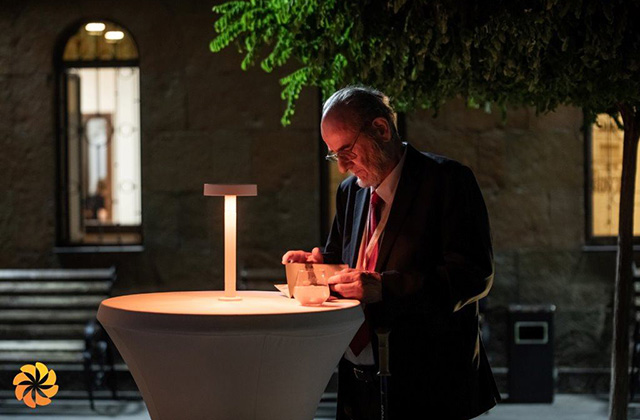Remembering the Armenian Genocide

Amidst the memorials to other genocides in this chilly and rainy month, we pause on April 24 to remember the 1915 genocide of a million and half Armenians. We are also historical witnesses to the hundreds of thousands of other ethnic and religious minorities killed in the Ottoman Empire. Accordingly, we remember the Greek, Assyrian and other victims. The state-sponsored Young Turk mass deportations and killings were part of a long historical pattern of inequality, injustice, prejudice, discrimination, repression and massacres by an authoritarian regime. It should be noted that the Turkish leadership’s ethnic and religious persecution predated and postdated 1915.
For example, in the 1890s, Sultan Hamid II had directed the Hamidian Massacres that led to the deaths of hundreds of thousands of Armenians. In 1909, tens of thousands of Armenians were also massacred by the Ottoman Turk regime. Amidst the increased secrecy and concentrated state power during World War One, the revolutionary Young Turk government’s slaughter of its Christian civilian population reached a deadly crescendo in 1915. The magnitude of the horror was such that the allied Entente powers of England, France and Tsarist Russia issued on May 24, 1915 an international warning to the Turkish government that it was committing “new crimes…. against humanity and civilization” and its leaders would be held “personally responsible” after the war.
Even after the killing stops, genocide often continues in a number of ways. More than a century later, the contemporary Turkish government maintains its aggressive policy of official state denial. But denial is an inadequate term to describe the magnitude of the ongoing malevolent acts. They can, of course, include denying the historical documentation, but also involve arbitrary restricting access to official state archives, destroying historical records, penning false histories, renaming places of mass atrocities, further discrimination and violence against the victims, and even threatening academics, journalists and human rights activists who dare to speak up for their fellow citizens. The distinguished Turkish historian Taner Akcam faced such threats. The prominent Turkish Armenian journalist Hrant Dink was assassinated. Even here in North America, denialist pressure exists. In my case as a professor at the Royal Military College in an earlier decade, the Turkish government attempted to silence me and threatened both the Canadian government and military, if I did not stop writing about the Armenian Genocide. The Canadian government and my university refused to be intimidated. My personal response was to pen the book Just Poems: Reflections on the Armenian Genocide. I also continued to teach and speak on the subject. It was what I needed to do.
The magnitude of a 1,500,000 dead is so vast that most of us have enormous difficulty comprehending. When teaching about genocide, I would often show a book with a million dots. Students were always shocked at how many pages it took. To overcome this statistical and emotional challenge of scale, I usually also talked at a more personal level. I would tell of my own painful family odyssey.
My grandmother – my metzmama – was an orphan of the 1915 genocide. She suffered so much. She did not know her real name or age. She lived in orphanages and refugee camps for over ten years. She endured as a young child, then teenager, mother, grandmother, and finally ever so briefly as a great grandmother. On a special day, her elderly weathered hand held the tiny newborn. In the end, life and love prevailed over death, but the dark shadows of the genocide haunted us all. Even today, we hear and see the Turkish government’s animosity and hate speech towards Armenians during the recent war of 2020 in the South Caucasus. Turkish-made deadly military equipment was used by Azerbaijan against Armenian civilians in Karabakh. The crimes against humanity continue.
And so as a grandson of an orphan of genocide, I need to speak out for all the orphans of genocide, whether they be from yesterday, today or even tomorrow.
We remember.
We speak out.
And we stand up against such injustice.
So that the candle of freedom and hope can remain as a guide to those still in the darkness.
Merci. Thank you.
***
Keynote speech to the Armenian Genocide Memorial event, Toronto, April 25, 2021.
Alan Whitehorn
Professor emeritus
Royal Military College of Canada
Kingston
Professor Whitehorn is the editor of The Armenian Genocide: The Essential Reference Guide (ABC-CLIO, Santa Barbara, 2015) and author of Just Poems: Reflections on the Armenian Genocide (Winnipeg, Hybrid Publishing, 2009).

























